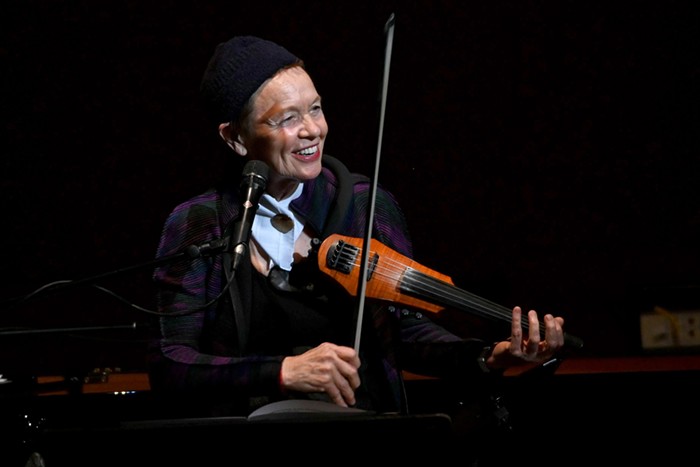THE DAYS of bands being discovered through MySpace are long over, and good riddance. That's not to say, though, that a band can't create a huge splash simply by posting a few songs online: Last year, the New York band Cults did just that, and managed to cultivate a huge buzz with people knowing virtually nothing about who was making the music. It led to attention from Pitchfork and a deal with Lily Allen's imprint on Sony Music. Cults may, in fact, be the world's very first Bandcamp success story (and let's hope it's not the last; the Bandcamp site's streaming media player and ease of use is infinitely more functional and appealing than the dying embers of Rupert Murdoch's shit-tangle of banner ads and long-forgotten profiles).
Now that Cults' self-titled debut album has been released and some of the mystique stripped back—the group is revealed to be a pair of San Diegans/NYU film students named Brian Oblivion and Madeline Follin—it's clear that their music is more than just a typical, flash-in-the-pan, blogosphere buzz. Cults is a candy-coated trip through the intersecting hallways of pop music's past, present, and future. Chipper sock-hop beats underpin watery synths, wall-of-sound reverb, and Follin's cartoonish, emphatic vocals. There are girl-group sounds and teenage-symphony sentiments, but they are attached to loops that couldn't have predated the hiphop era; the record's pastel and day-glo hues are intimately rendered with a bedroom coziness that could only come from the laptop era.
In fact, "retro" was a dirty word during the recording process, says Oblivion. "If anyone said, 'That sounds retro,' we'd start over from scratch," he says, recognizing that while Cults' tunes are much indebted to the past, he and Follin were striving for something that sounded contemporary. The tracks were created from the ground up, with the rhythm coming first, and the melodies (and the sparkly gloss that makes them so addictive) coming later. The record was "90 percent" recorded at home, Oblivion says.
And, despite the attention they attracted, the songs were never meant to be heard by anybody other than a few friends. After the songs went up and Oblivion and Follin realized what was happening, they both became incredibly nervous. "We actually wanted to send two friends out instead of us," Oblivion says of the realization that they'd have to play these songs in front of audiences. But the excitement of their budding success and their genuine affection for the songs won out, and now Cults is embracing the realities of being a touring band, having recruited three friends (drummer Marc Deriso, bassist Nathan Aguilar, and guitarist Gabriel Rodriguez) to help them recreate the loops and textures from the record. "If anything, the live show is much more danceable," Oblivion says.
As far as new songs, he reports they have some ready for the next album, which will sound "more gospel-y." The musical ideas can come at any time: Sometimes Oblivion is at a bar and will get an idea from music that he can only half-hear in the background. "I'll say to my friends, 'I gotta go," he says, adding that he'll sometimes hum a phrase into his phone in the alleyway. If the band's anonymity characterized the first phase of their existence, it seems likely that the participatory elements of Cults' music won't get diluted as the band continues to bring their whirling, 21st-century-jukebox pop out of the bedroom.



















